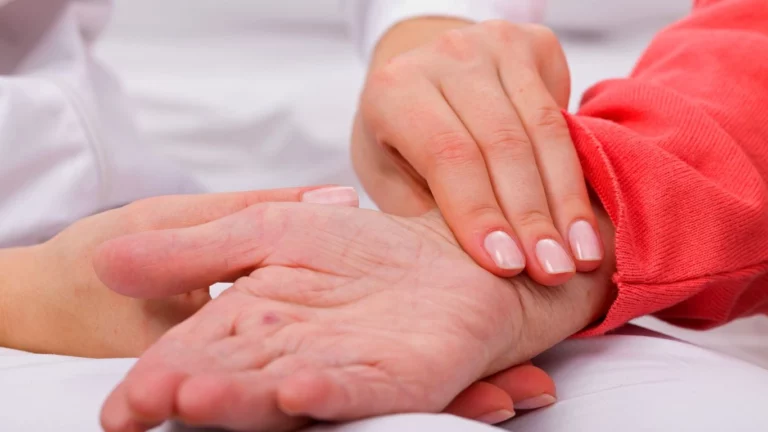Proven Ways to Beat GERD and Sleep Better Tonight Without Meds
GERD and poor sleep often go hand in hand — and it’s a combination that can leave you feeling drained, foggy, and frustrated. I’ve been there, tossing and turning, trying to find that “magic” sleep position that won’t trigger that burning feeling in my chest. The good news? With a few tested strategies, you can stop letting acid reflux control your nights and start getting real, uninterrupted rest again.
How GERD Hijacks Your Sleep Without Warning

You might not even realize GERD is behind your sleep problems. For some people, reflux doesn’t cause full-blown heartburn — instead, it sneaks in as throat irritation, coughing, or even that nagging postnasal drip that won’t quit. The moment you lie down, gravity stops helping, and stomach acid can more easily slide into your esophagus.
Symptoms like these often show up or worsen at night:
- Burning sensation or chest tightness when lying flat
- Waking up coughing, choking, or needing to clear your throat
- Sour taste in the back of your mouth or nighttime regurgitation
- Interrupted sleep cycles and waking up feeling unrested
According to research cited by the Sleep Foundation, people with nighttime GERD experience more fragmented sleep and are at higher risk for insomnia and fatigue during the day.
Proven Fixes That Help You Sleep Better — Fast

Let me be honest: I tried all the usual fixes — antacids, skipping spicy foods, eating earlier — but it wasn’t until I got consistent with certain habits that my sleep actually improved. These aren’t gimmicks — they’re practical, proven fixes that you can try starting tonight.
1. Don’t Just Elevate Your Head — Raise Your Torso
A stack of pillows under your head won’t do much. You need to elevate your entire upper body. A wedge pillow or an adjustable bed is best. The incline helps keep acid down and reduces that awful backflow during the night.
2. Sleep on Your Left Side
Sleeping on your left side has been shown to keep acid lower in the digestive tract. It’s one of the simplest changes that made a major difference for me. Right-side sleeping? That made it worse.
3. Give Your Gut a Head Start
Late-night meals are a major reflux trigger. Try to finish eating at least 3 hours before bedtime. If you get hungry later, choose GERD-friendly snacks like bananas, oatmeal, or plain crackers.
4. Calm Your Nervous System
Stress can ramp up acid production and weaken your digestion. A bedtime wind-down routine — even just 10 minutes of deep breathing, light stretching, or a warm shower — can help reduce your reflux triggers while easing you into restful sleep.
The Link Between Sleep Deprivation and Acid Reflux

Here’s the kicker: poor sleep doesn’t just come from GERD — it can make reflux worse. When your body doesn’t rest, it produces more stress hormones like cortisol, which can increase stomach acid and inflammation. It’s a cycle that’s hard to break unless you tackle both sides — your digestion and your sleep quality.
If your current strategies aren’t cutting it, I highly recommend checking out this in-depth breakdown on GERD and sleep from a medical perspective: How GERD Affects Sleep Quality: A Comprehensive Guide. It explains the science and long-term solutions far better than most “quick fix” tips online.
Natural Remedies to Support Better Sleep with GERD

Looking for something beyond medications? Some natural remedies helped me reduce my dependency on antacids (which can cause rebound acid when overused). Here are a few that actually worked:
- Chamomile or slippery elm tea before bed to soothe the digestive tract
- Melatonin supplements — yes, the sleep hormone — which may also help strengthen the LES muscle
- Deglycyrrhizinated licorice (DGL): an herbal tablet that helps coat and protect the esophagus lining
Everyone’s body is different, so it’s smart to check in with your doctor before starting supplements — especially if you’re on other medications.
When It’s More Than Just Heartburn

Sometimes persistent nighttime GERD signals something more serious. If you’re waking up gasping, noticing trouble swallowing, or feeling exhausted all day, it may be time to rule out other issues like sleep apnea or esophageal inflammation.
Your doctor may recommend testing, lifestyle changes, or prescription therapy to control symptoms more effectively and prevent long-term damage.
If you’re not sure where to start, this breakdown of the most effective GERD treatments covers all the current options — from OTC to surgery.
Getting Your Nights (and Mornings) Back

Managing GERD at night doesn’t require magic — just a focused, realistic plan. For me, it started with one change at a time. First I stopped eating late, then I swapped in a wedge pillow. Within a few weeks, I was sleeping longer and deeper than I had in months.
Ready to take back your nights? Start with a small change today. And if you want the full picture — from causes to advanced solutions — this guide on GERD and sleep quality is an essential read that ties everything together.

Camellia Wulansari is a dedicated Medical Assistant at a local clinic and a passionate health writer at Healthusias.com. With years of hands-on experience in patient care and a deep interest in preventive medicine, she bridges the gap between clinical knowledge and accessible health information. Camellia specializes in writing about digestive health, chronic conditions like GERD and hypertension, respiratory issues, and autoimmune diseases, aiming to empower readers with practical, easy-to-understand insights. When she’s not assisting patients or writing, you’ll find her enjoying quiet mornings with coffee and a medical journal in hand—or jamming to her favorite metal band, Lamb of God.







